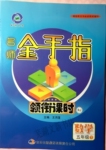题目内容
Cloze
Cretel has often noticed that Sandy and Sue don't have much homework. She raised the 1 at dinner the other evening and Mr Clark tried to explain. “In some countries,” he said, “children are 2 to do a lot of homework from the moment they 3 school.” They are often obliged to learn their lessons by heart and they are tested 4 day by their teachers. The children learn from 5 the same books and follow a strict state program. It's quite the 6 in England. Teachers seldom make very young children do 7 homework. They rarely get their pupils to 8 their lessons by heart. The teachers themselves are usually free to 9 the books they will use. Some teachers don't use books 10 ! After the age of 11 or 12, of course, children are generally made to do some homework, but 11 very much. From the age of 14 onwards, they usually have quite 12 .
As they will be taking important exams, 13 even then, the question of homework is largely 14 own responsibility.
Cretel thought English children were very 15 but Sandy and Sue didn't agree, which is hardly surprising.
1.
[ ]
2.
[ ]
3.
[ ]
4.
[ ]
5.
[ ]
6.
[ ]
7.
[ ]
8.
[ ]
9.
[ ]
10.
[ ]
11.
[ ]
12.
[ ]
13.
[ ]
14.
[ ]
15.
[ ]

 名师金手指领衔课时系列答案
名师金手指领衔课时系列答案Cloze
The government wanted to put __1__ a big office building in the capital and had to choose an engineering company to do __2__ work. Several big companies wanted the job, because it would bring __3__ a lot of money __4__ they could get it, but, of course, they could not all have it, so the government had to decide __5__ of them should be the lucky __6__. So they appointed(任命,委派), a government official to __7__ the various companies' offers, decide which was the most suitable, and then advise the Minister of Works which of them to choose.
After some months, the choice was __8__ and work was about to begin __9__ one of the companies which had not been successful complained(抱怨)to the Minister They said, the official who had been responsible for __10__ him on the choice of a company to do the work had accepted bribes(贿赂).
The Minister at once ordered an inquiry(调查)into the whole matter, and after a month had __11__ that the official had __12__ taken bribes. He therefore sent for him and asked for __13__.
The official admitted that he had taken big bribes. “But,” “ he said, I did not just take one from the __14__ to which I recommended that you __15__ the work. I took a bribe from each company and promised to give them the work.”
“Well, then,” said the Minister, “ __16__ did you finally make your choice? Did you choose the one .that gave you the biggest bribe.”
“Certainly, __17__ , sir.” answered the official, deeply __18__ that the Minister should scold him __19__ such dishonesty. “I was very careful to take __20__ the same bribe,from each of the companies that were trying to get the job, and then choose the one that I thought would do the work best and most cheaply, of course.”
|
(1) A.down |
B.put out |
C.up |
D.forward |
|
(2) A.a |
B.the |
C.any |
D./ |
|
(3) A.that |
B.it |
C.them |
D.what |
|
(4) A.because |
B.if |
C.as |
D.before |
|
(5) A.one |
B.some |
C.any |
D.which |
|
(6) A.job |
B.work |
C.one |
D.companies |
|
(7) A.see |
B.go over |
C.look |
D.examine |
|
(8) A.made |
B.done |
C.taken |
D.chosen |
|
(9) A.when |
B.while |
C.as |
D.before |
|
(10) A.asking |
B.advising |
C.persuading |
D.suggesting |
|
(11) A.proof |
B.question |
C.result |
D.problem |
|
(12) A.probably |
B.indeed |
C.in fact |
D.possibly |
|
(13) A.a study |
B.a discussion |
C.an explanation |
D.an examination |
|
(14) A.company |
B.office |
C.official |
D.building |
|
(15) A.should give |
B.would give |
C.should have given |
D.gave |
|
(16) A.Why |
B.How |
C.What |
D.When |
|
(17) A.no |
B.so |
C.yes |
D.not |
|
(18) A.thought |
B.regarded |
C.noticed |
D.felt |
|
(19) A.for |
B.with |
C.at |
D.of |
|
(20) A.greatly |
B.exactly |
C.nearly |
D.not |
| |||||||||||||||||||||||||||||||||||||||||||||||||||||||||||||||||||||||||||||||||||||||||||||||||||||||||||||||||||||||||||||||||||||||||||||||||||||||||||||||||||||||||||||||||||||||||||||||||||||||||||||||||||||||||||||||||||||||||||||||||||||||||||||||||||||||||||||||||||||||||||